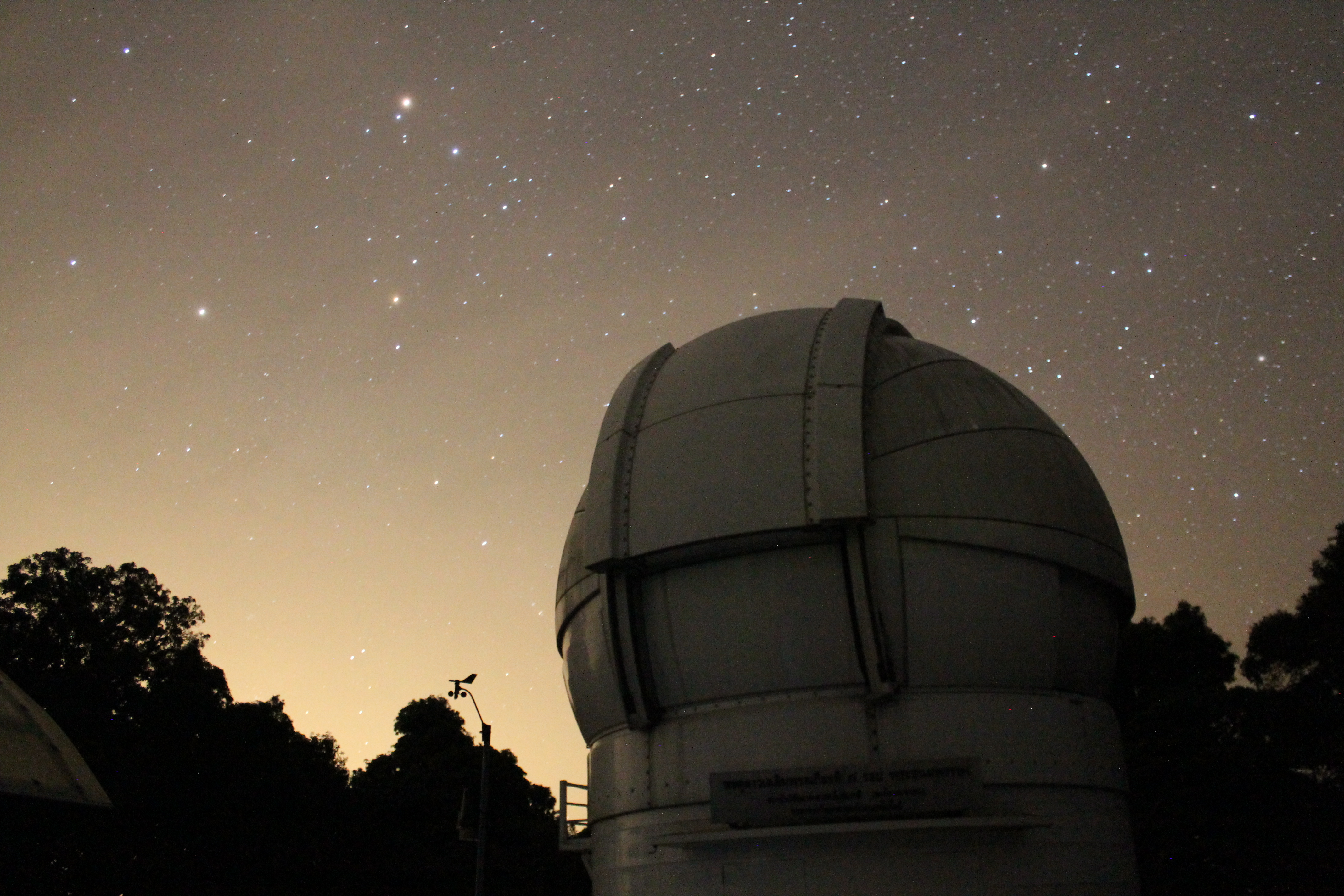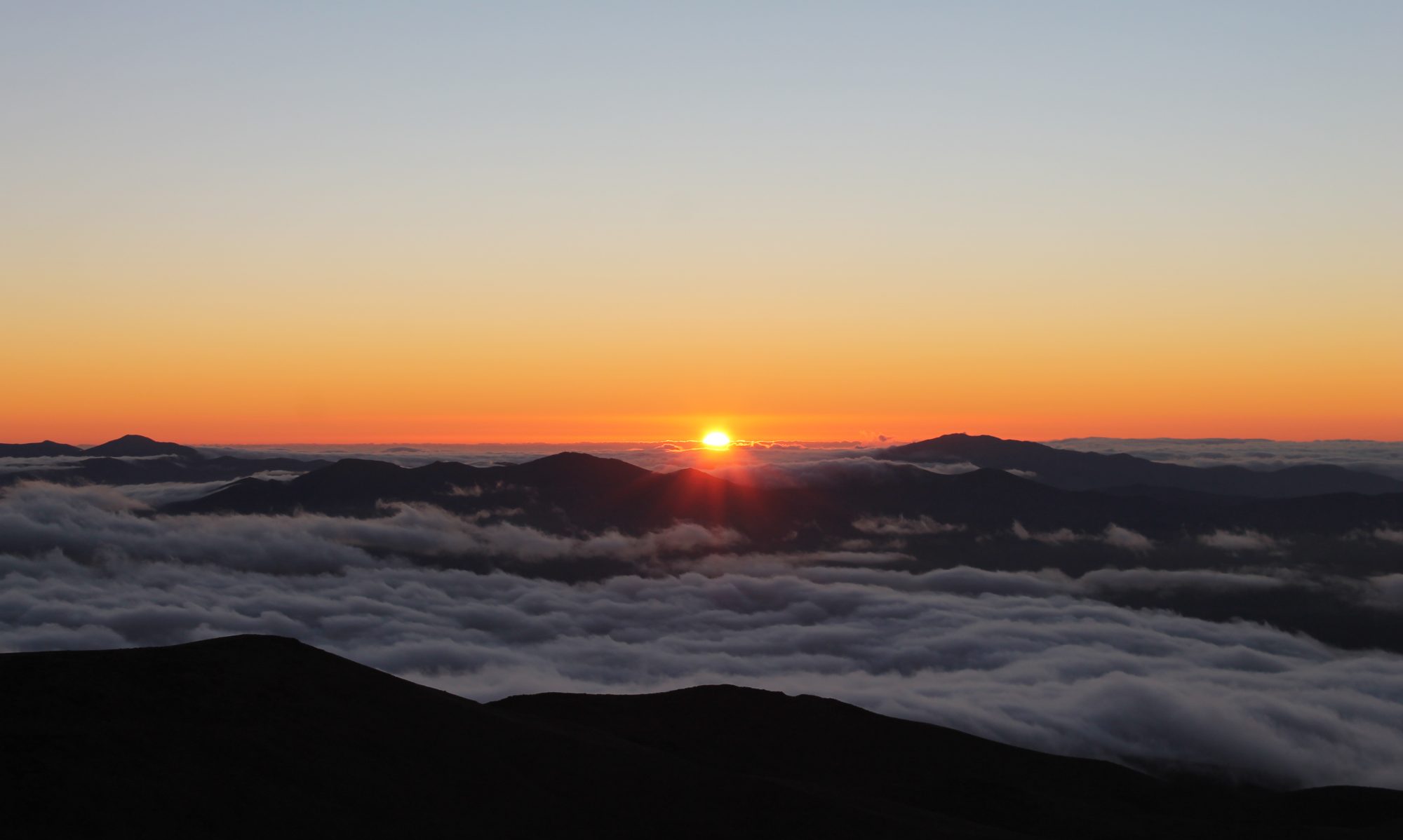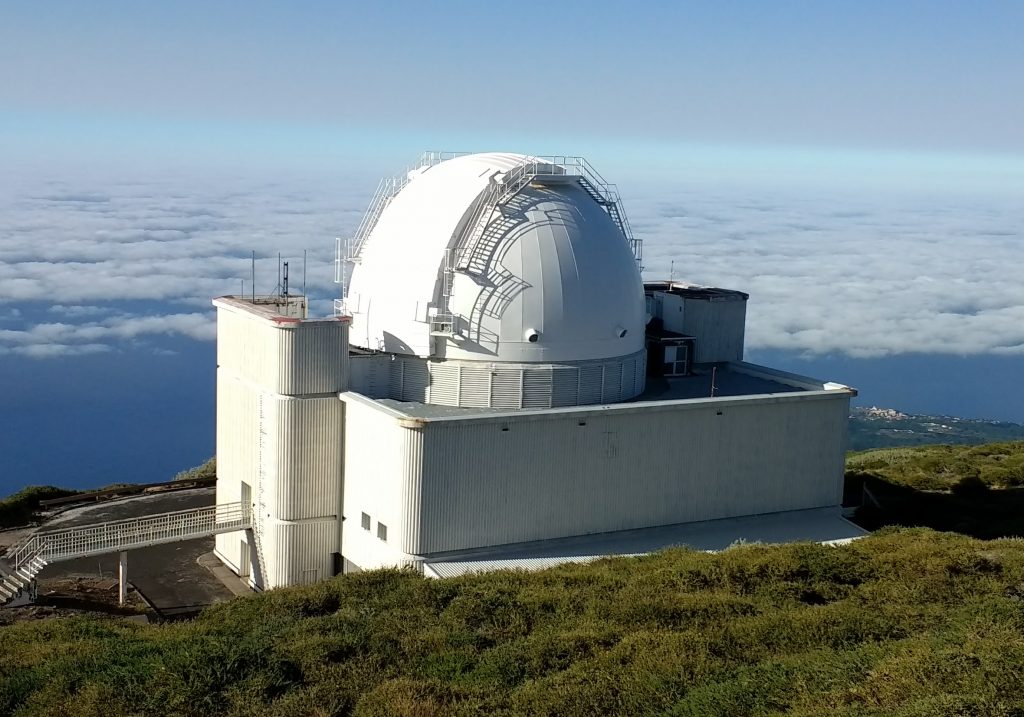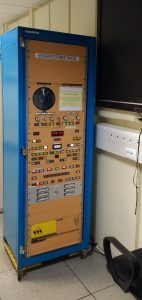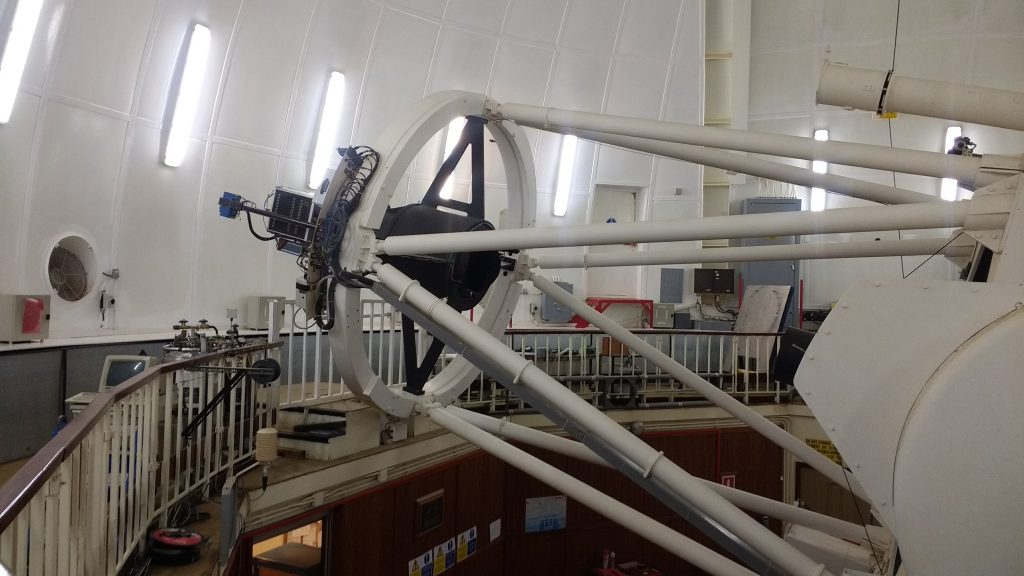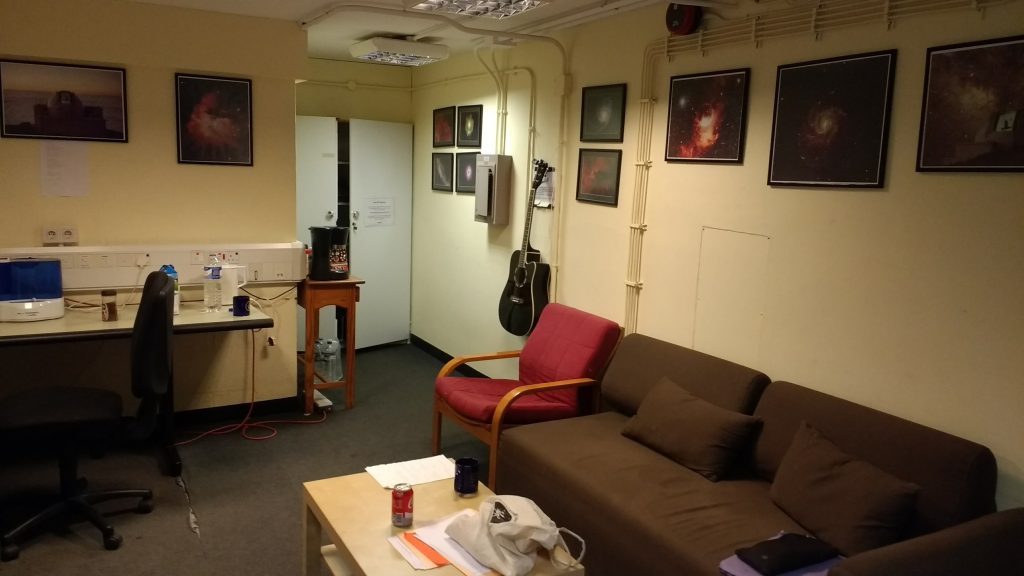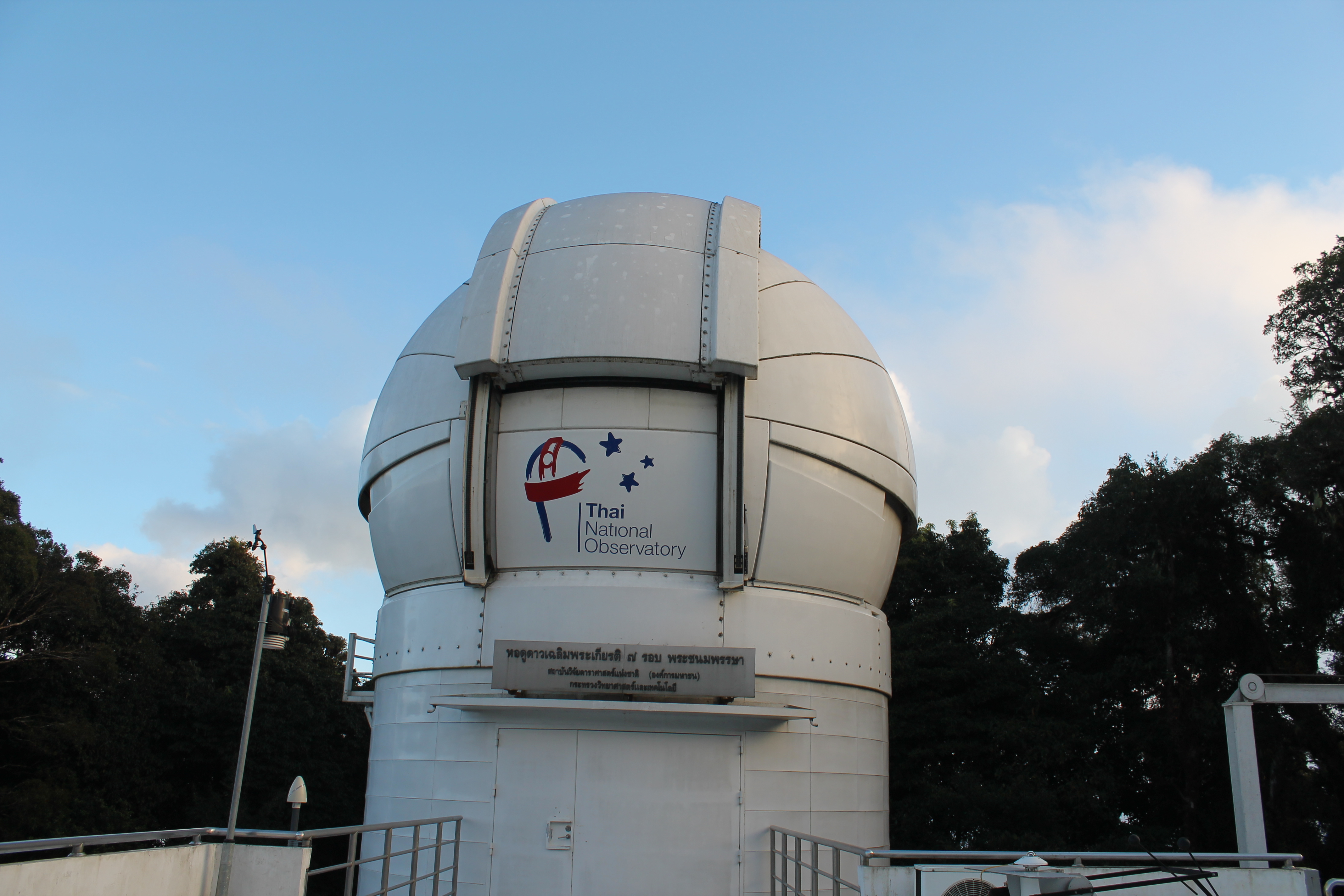
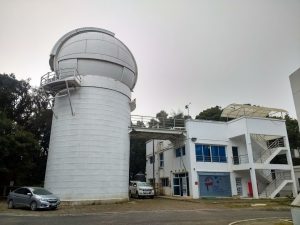
A few weeks ago I was at the Thai National Telescope (TNT). The telescope is pretty newly built (around 2012 I think) so everything is a bit more modern than most telescopes. It’s a 2.5m telescope on top of Doi Inthanon, the tallest mountain in Thailand, about 2 hour’s drive from Chiang Mai. The telescope is run by a Thai government organisation called NARIT, who also run a handful of smaller (0.7m) telescopes around the world.
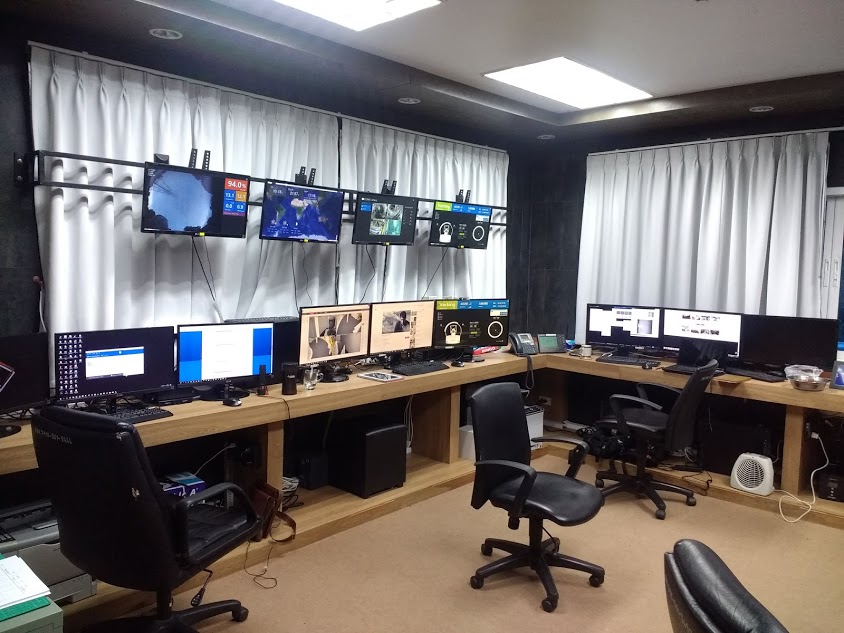
We control the telescope and instruments from a spacious control room in the building attached to the telescope. The monitors here are for controlling and monitoring the telescope itself (on the left) and one of the instruments (the three monitors on the right). There was generally 2-3 telescope operators around, plus me (I was controlling just the camera). Also in the building is a mini kitchen, a bathroom, and a sofa people can nap on.
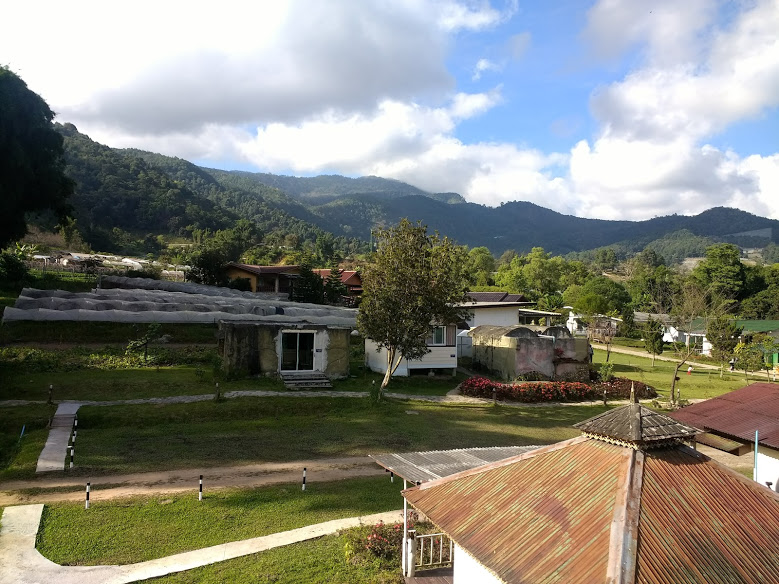
View from my window in the lodgeWe sleep in a lodge partway down the mountain. The lodge is in a holiday camp which is quite pretty, although it can be noisy when you’re trying to sleep during the day. It’s about half an hour’s drive up the mountain every afternoon and the same back down in the morning — an unpleasant drive when it’s dark and foggy, especially with the number of tourists who drive up the mountain to watch the sunrise.
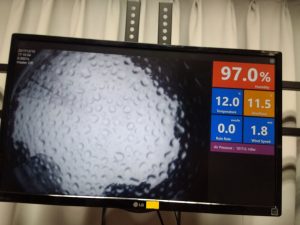
There was some awful weather and we didn’t get too much data — we were closed for 5 nights out of the 6 I was there. The bad weather is apparently related to the El Nino / La Nina weather cycle, where South-East Asia gets heavier rain during La Nina years.
I was here a year ago, and had much better luck with the weather then — and even managed to take some pictures of the sky when it was clear.
